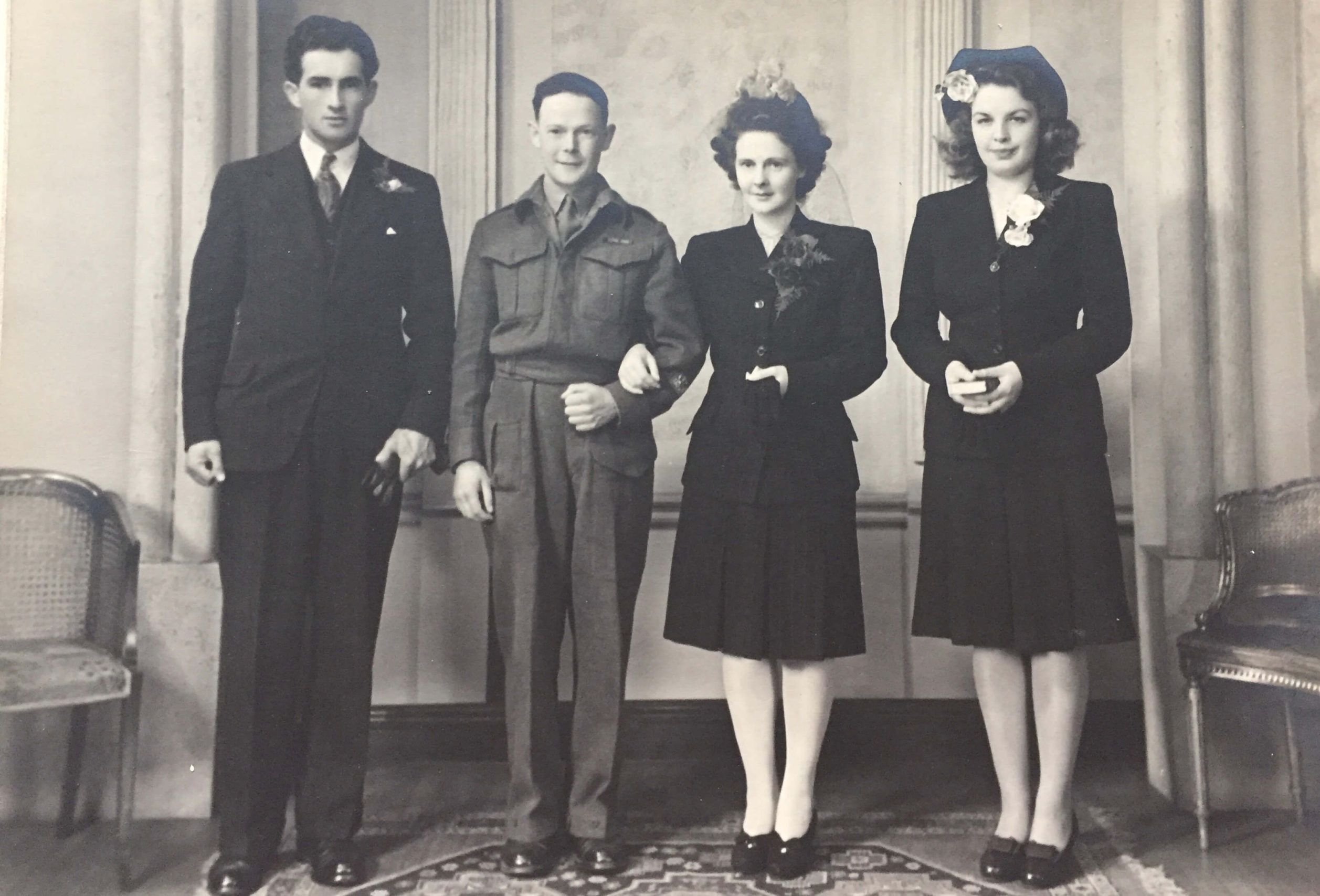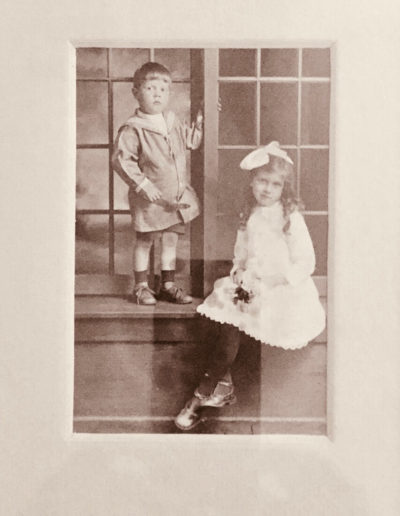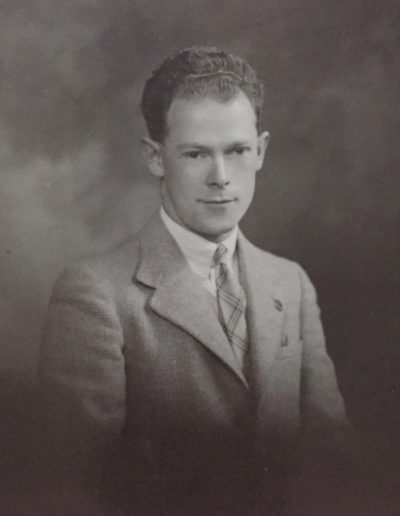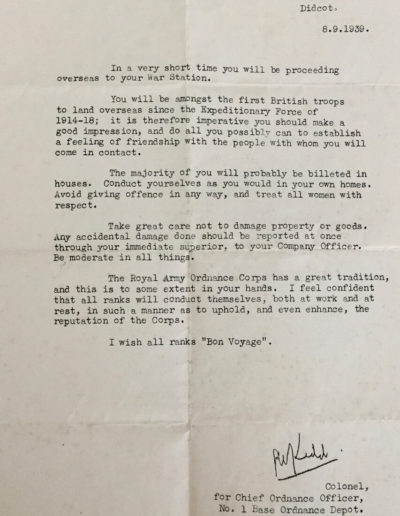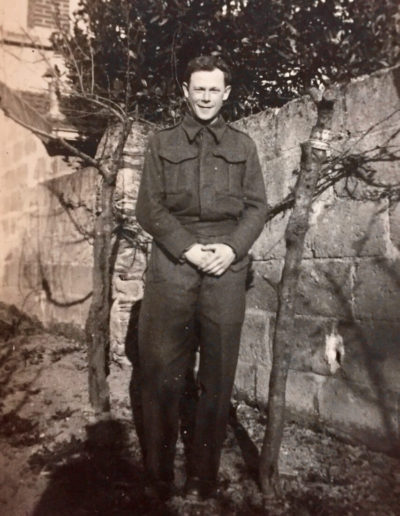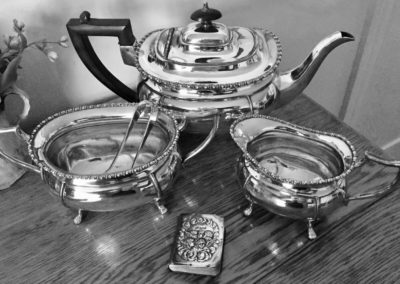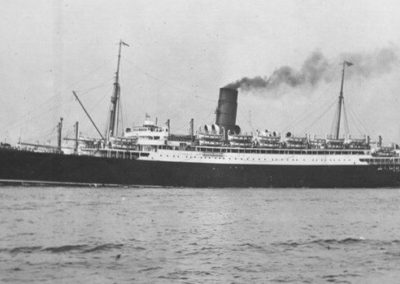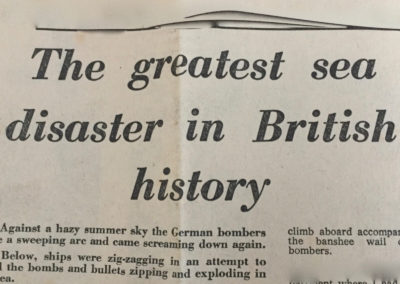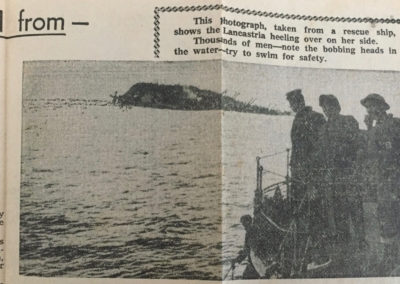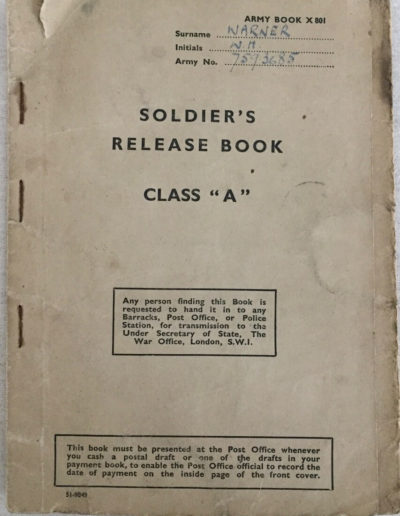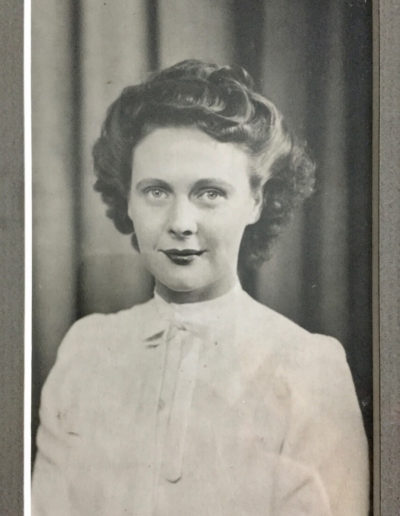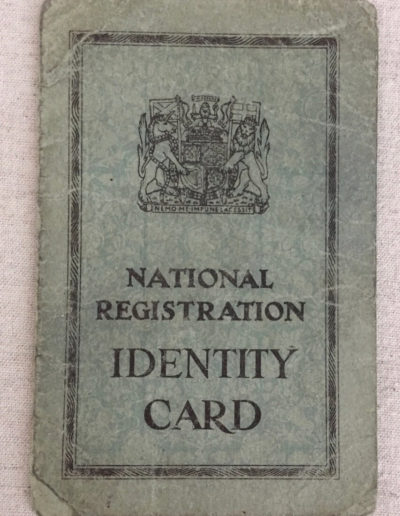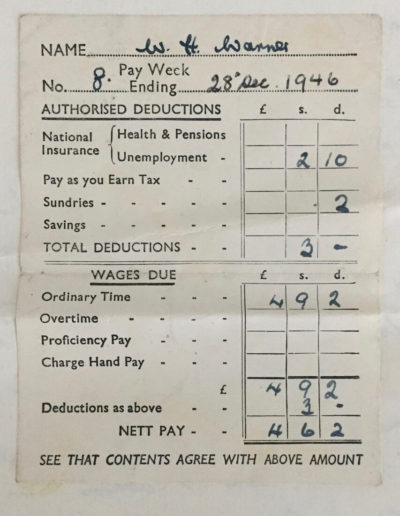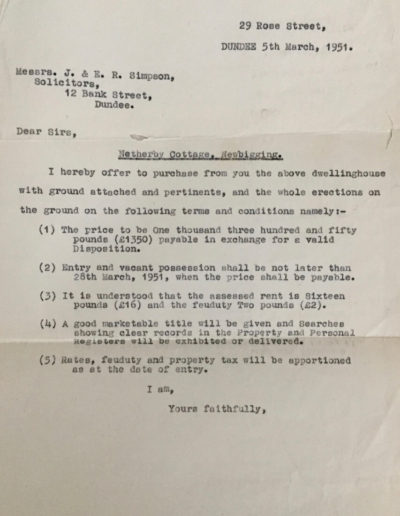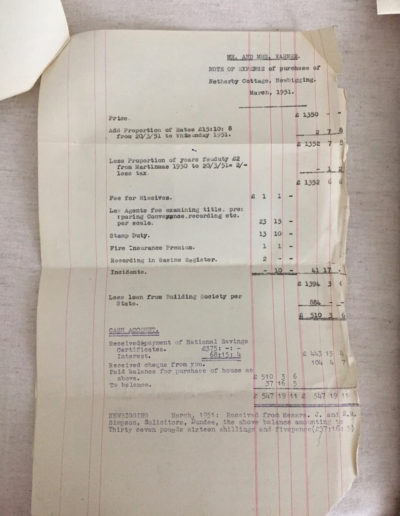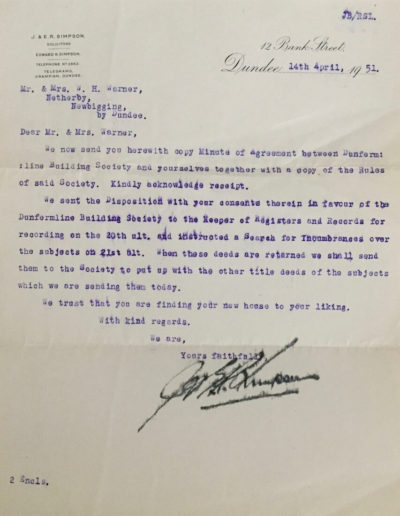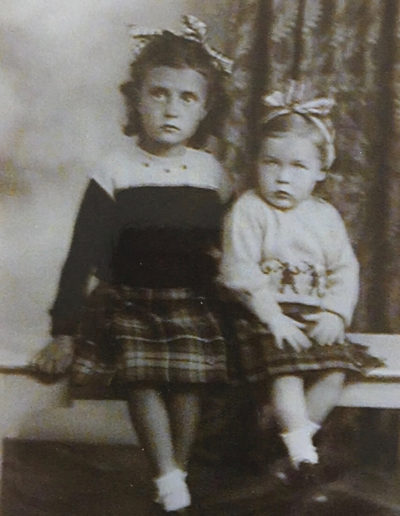The Story Continues
World War II and beyond.
In 1913 there was a young boy born in Alliston, Ontario to an English couple Minnie Warner (nee Clayton) and William Warner. They had gone to Canada with their young daughter Grace because there was no work in England at the beginning of the century. William was a silversmith from Sheffield and a very good one at that. When WWI started they returned to England where William Henry Warner (Harry) grew up. Harry ended up being a middle child when his sister Nancy was born. He was a very good student and loved reading and also was very active in the Scout movement where he became a Scout Master. He worked in the office of a stockbroker in Sheffield. The other thing that Harry loved was cycling and in the Spring of 1937 he rode his bike from Sheffield to Dover and took a ferry over to Europe . He ended up cycling through the Rhine Valley in Germany and while there saw a great amount of German soldiers. Little did he know that he would be volunteering to go to war in the near future. He was sent to France in September, 1939 but on June 17th, 1940 his camp was told to leave immediately as there was a boat taking soldiers and civilians to safety in the UK. He did not reach the port of St Nazaire in time. When he got to the dock he witnessed the Germans bombing and sinking the Lancastria with over 6.000 men women and children aboard. Then the bombers strafed the people in the water. Over 4,000 were killed. At that point he vowed to spend the rest of his life being thankful and doing good for others and he did. He landed back in the UK and was stationed in various parts of Scotland. While in Scotland he met and married our mum Elizabeth Love Anderson.
Before the war mum had worked in Keilor’s hand dipping chocolates and then promoted to work in the lab. She was not one to sew or knit like gran and her other sisters Jean and Rettie but she loved to read and was very good at writing. Her youngest sister Rettie became a seamstress-tailor. Gran and the children attended an Episcopal Church called St Salvator’s – a very high Episcopal Church. Granddad was supportive but attended infrequently. To attend an Episcopal Church was somewhat unusual as most people in Scotland were Presbyterian. Harry, being English was Anglican – the English version of the Episcopal Church. Reading and faith were things that mum and dad shared and they were married in the Episcopal Church. Mum’s sister Jean also got married and both mum and Jean had little girls towards the end of the war. Jean’s daughter was named Elizabeth and like mum was called Betty. Mum called her first child Sarah Love after our granny. Jean and her husband Jimmy Cathro had a house in Ann Street and mum and dad had a house in Rose Street – still in the Hilltown area. Both sisters and their family were close friends for life. While living in Dundee mum and Jean would always be visiting Granny and their children became very fond of her. My sister Sarah remembers going down to the wash house in Caldrum Street with granny to do the weekly wash. Sarah would sit on top of the washing in the pram. Food was still rationed but everyone was happy that the war was over. Businesses were opening up again and employment was getting better. Years later I remember going to Smith and Horner which had the best “haberdashery” around.
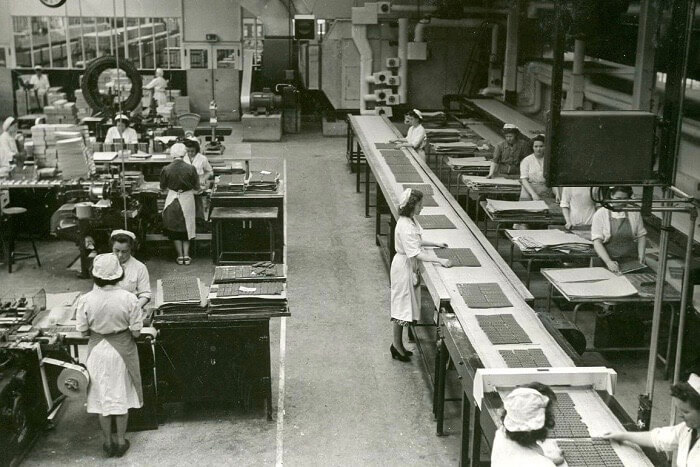
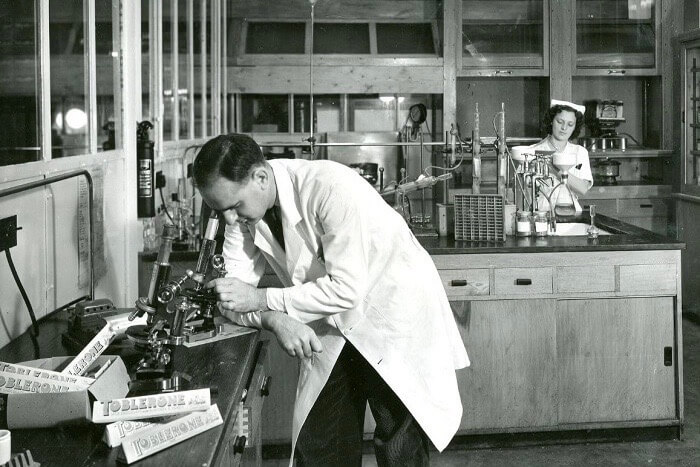
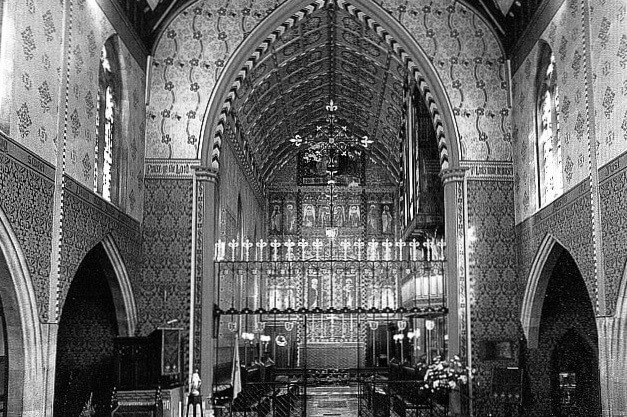
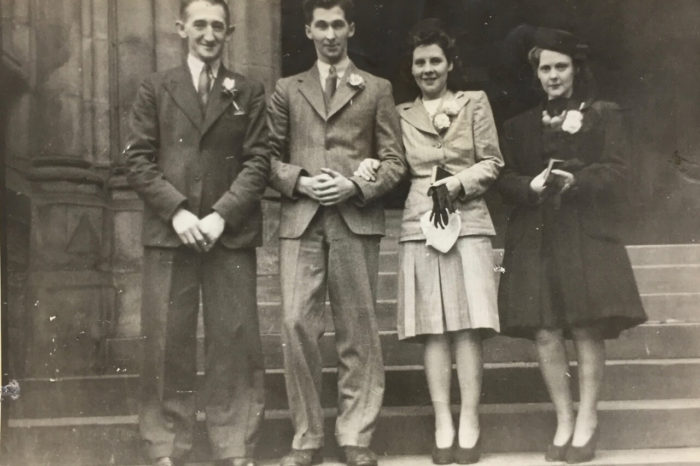
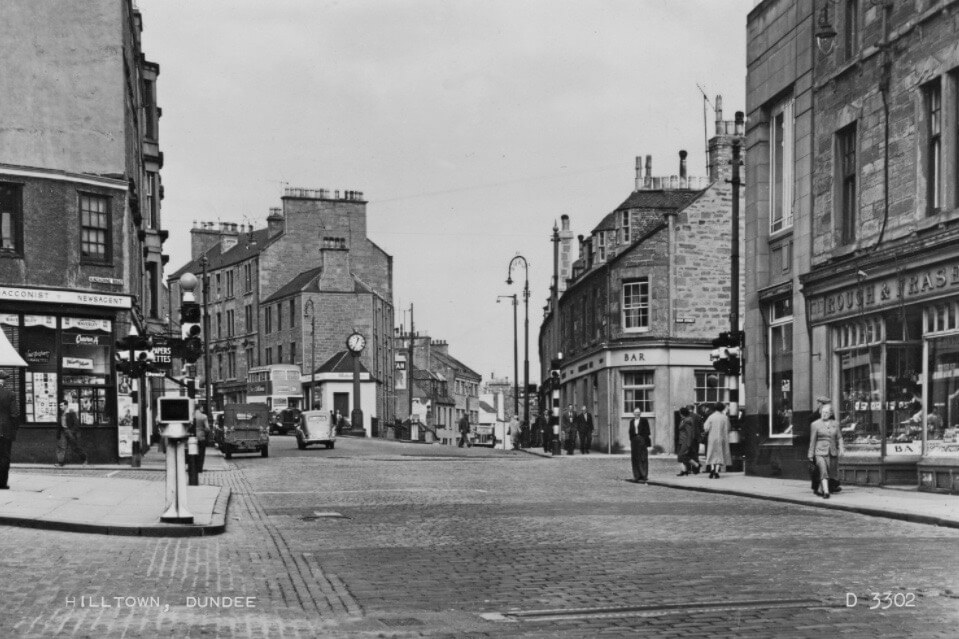
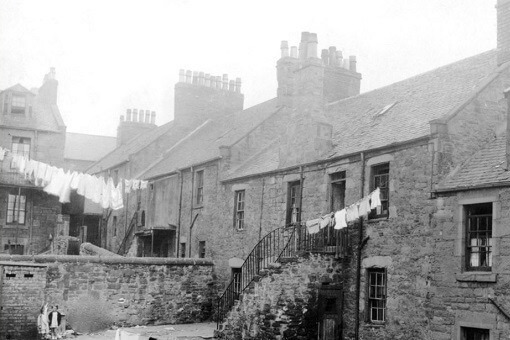


Mum and dad were very lucky to get a house but only had one room to the right at the top of a small flight of stairs. There was another couple who lived to the left and at the beginning they shared the sink which was in the little hallway between. There were two families living underneath so a nice little place. Later they acquired the second room when the tenant left.They had a small drying green – no more hanging out the window to put out the washing. Now out of the Army dad worked in the office of Gray Bros. and ultimately as a buyer in an engineering firm called Urquart Lindsey and Robertson. Amongst some of dad’s papers I found a copy of a pay slip – probably one of his first. Also an Identification Card. These cards were implemented during the war and remained until 1952. Identification was necessary if families were separated from one another or their house was bombed, and if people were injured or killed. Children under 16 were issued with Identity Cards but they were to be kept by their parents. There were also a few sheets of paper with notes on it. Here are some of them,
Note: my mum was the Betty referred to and my sister was Ray. In Scotland lunch is called dinner and the evening meal is called tea!
Sat 21st Dec
Almost overslept but just managed to be at work in time- glad for 12.00 midday and finished for the weekend. After dinner Betty,Ray and I went downtown to buy a coat for my work and other shopping. Reported at the Post Office at 5pm to draw my pay for the three days 2 pounds 6 shillings and 9 pence. The evening was whiled away playing with Ray and she fell asleep during her nightly dance.
Sunday 22nd Dec
Arose at 7am but the morning was too gusty and wet to go out.Betty cleaned while Ray and I played. After dinner we all helped to make decorations for Christmas. Before we had tea we were surprised by Granny Granddad and Jean who had tea with us and stopped for a game of cards. They left and after bathing Ray we found that we had so many odd jobs to do that it was 11-30pm before we were able to go to bed.
Tues 24th Dec
Christmas Eve but in Scotland much like any other day . At Gray Bros, the storekeeper tried to create an atmosphere by opening a bottle of Sherry. At home we lit the candles on the Christmas tree for Santa Claus to find his way and a candle was left burning in the window – Ray wanted to keep awake to see Santa arrive.
Wednesday 25th December
Christmas Day – when Ray awoke as usual about 7am Santa had already paid his visit. Her eyes opened wide as she opened her stocking and found a gypsy dolly – a humming top – orange – apple – money – books – games etc. I had to tear myself away from the humming top in order to be in time for work. Arriving home in the evening I found that the Clan had arrived The Andersons and The Cathro’s. Betty had laid the table very well and it looked like a real Christmas dinner. Chicken, sausage, roast potatoes, sauce, trifle, mincemeat pies, jelly, apple tart, fruit tart and an iced Christmas fruit cake. All went towards filling the inner man – with a choice of lemonade, beer, sherry, and tea to complete. After the repast the gentlemen adjourned to the St Andrew’s Tavern for a quiet game of dominoes, while the ladies cleared up and watched the antics of Ray and Jean’s daughter Betty. When we returned we had a cup of tea and Ray gave our guests a gift from under the Christmas tree.
On reading these little glimpses into life over seventy years ago I realize once more the beauty in simple living – of family and a grateful heart. Before I write more I want to give a little history of Christmas in Scotland. In 1560 Scotland split from the Catholic Church, in a period known as the Scottish Reformation, which saw religious thought change radically. Christmas was associated with Catholicism and, thought to be an extravagant celebration that didn’t reflect bible scripture, it was effectively suspended in 1640 when the Scottish Parliament passed a law making it illegal to celebrate “Yule vacations”. This law was strictly enforced and people found to celebrate Christmas risked facing imprisonment. While this ban was officially revoked in 1712, the Church continued to frown upon the festive celebration and it wasn’t until 1958 that Christmas day finally became a public holiday. England on the other hand had had a public holiday since 1834 and in 1870 Christmas Day became a federal holiday in the USA.
The writings above were December, 1946 and in March the following year our brother Kenneth was born. Mum and dad were delighted to welcome him to the family but their joy was short lived. Kenneth was born with spina bifida and only lived for six weeks. At this time Ray spent much of her time with Granny. The following year I was born and named Heather Grace – Grace after dad’s older sister. Now Ray had a little sister to play with. We stayed in Rose Street until I was three and my sister was seven. Granny would often meet Ray at Rosebank school and walk her home to allow mum to be with the “new bairn.” My sister tells me the story of Christmas 1950 when I was not quite three. Amongst other things I was given a pram for my doll – something like a baby buggy. My sister as she was bigger and older got a larger pram. Well I wanted the bigger pram and started crying. When this did not work I apparently threw it across the room saying “I not want the little pram!!” Life for mum and dad was never the same as that lovely Christmas just two years previous!
For some years dad had been saving and wanted to move out of the city to a house with a garden where “the girls” could play. In March 1951 we left Dundee and moved to Netherby, Newbigging.
